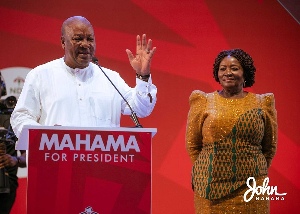Professor Gareth Austin, an Economic Historian at the University of Cambridge, United Kingdom, has observed that the current economic conditions and infrastructural development of Ghana are conducive to propel the industrialisation agenda of the Government.
Currently, he said, the country had better educated personnel and cheaper workforce compared to the time of independence in 1957 when there were fewer and expensive labour force to drive the industrialisation agenda embarked upon by Osagyefo Dr Kwame Nkrumah, the country’s First President.
However, he expressed doubt about the industrialisation approach adopted by the ruling New Patriotic Party Government, which wanted to achieve uniform development across the country through the “One District, One Factory” programme, describing it as “unusual approach”.
He said no country in the world had achieved uniformed industrial transformation and cited China, South Korea, Malaysia and other advanced economies, which developed the various parts of their countries in stages.
Prof. Austin, who is also a Fellow of Kings College, University of Cambridge, United Kingdom, made these assertions at a public lecture organised by the Institute of Economic Affairs, a policy think tank, in Accra, on Tuesday.
The event is on the theme: “Ghana’s Economic Development 60 Years after Independence”, which brought together academicians, economic analysts, government officials, the diplomatic corps and the media.
“I have a degree of doubt about implementing that particular policy because the way industrialisation had occurred in any country; there has never been a wide distribution of factories across the country at the start.
“I have my reservations because industrial firms turn to find it more economical to locate themselves near each other in terms of skilled labour and so that particular policy has a lot of question marks,’’ Prof. Austin noted.
Prof. Austin cited the Kumasi Suame Magazine, which thrived because it was concentrated at a particular area in the city and, therefore, suggested that the country should adopt intensive labour industrialisation approach.
He said Ghana had enjoyed relative economic growth during political stability from 1983 up to date compared to the period of political turmoil under different military regimes, in which the country witnessed economic downturn.
Mr Mustapha Abdul Hamid, the Minister of Information, in a quick rebuttal to the opinion expressed by Prof. Austin, said there was a “One District, One Product” economic model in Japan, which was implemented in 1979.
He said the Japanese government at that time encouraged every district to add value to its natural endowment, which is similar to what the Government wants to pursue, therefore, there is high possibility that, the One District, One Factory” initiative would be successful, if there is political zeal and commitment.
Dr Michael Ofori-Mensah, the Director of Research at the IEA, said over the years, the IEA had undertaken wide range of research of the importance of transforming the country’s economy because transformation remained key to the country’s development.
Therefore, as a country, we need to reflect on what economic policies had worked well and those that had failed in order to chart the way forward.
In order to find requisite solutions to Ghana’s economic woes, he said, there was the need to critically examine and understand the factors that contributed to the current economic situation.
He noted that the consistent World Bank and International Monetary Fund policy directions to Ghana, over the years, had not provided the solutions and transformation required in resolving the nation’s economic challenges.
He said as a nation, we should not remain unconcerned about the economic challenges, but rather find alternative means to transform the economy for the better.
Business News of Wednesday, 27 September 2017
Source: ghananewsagency.org













